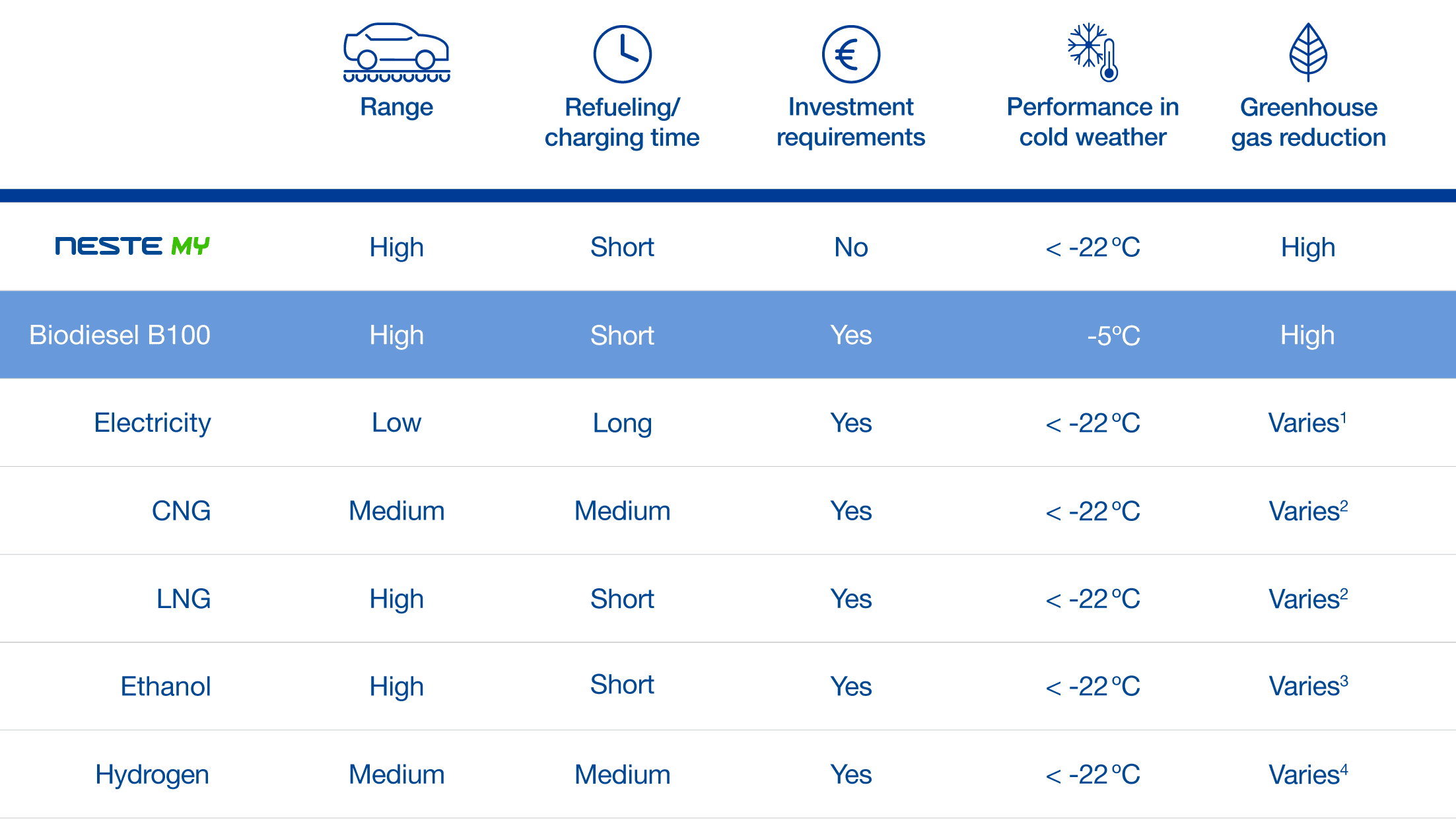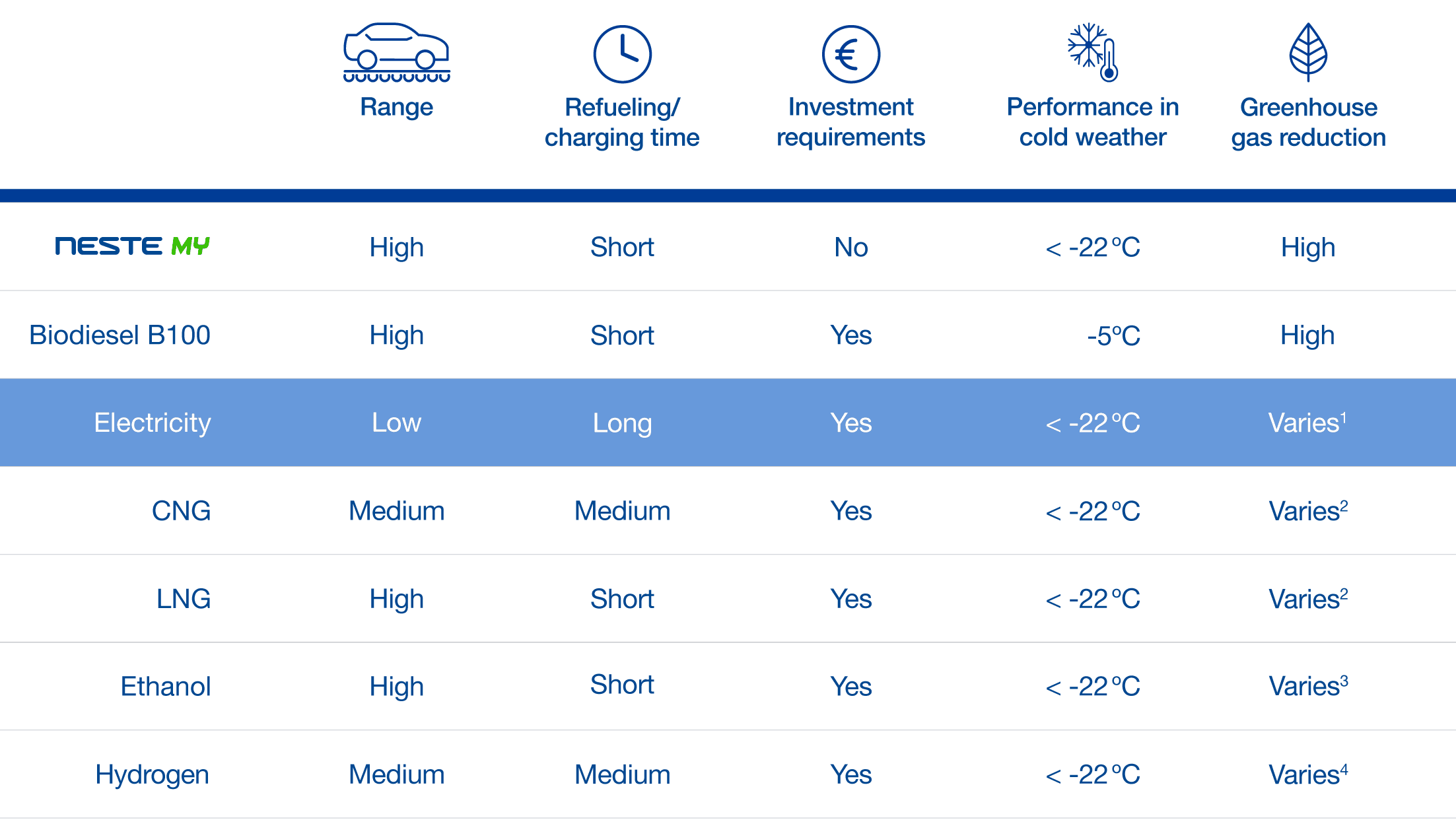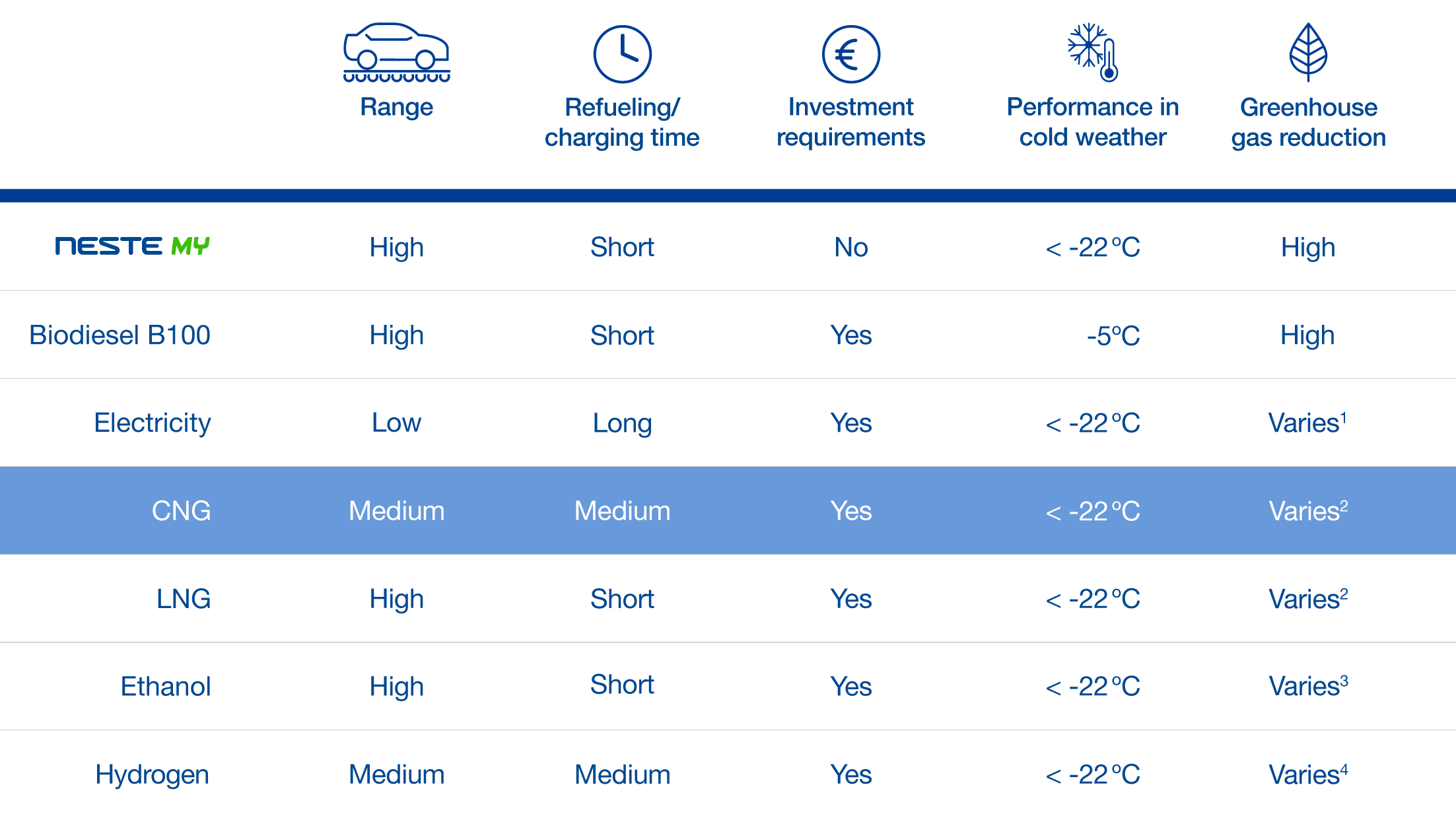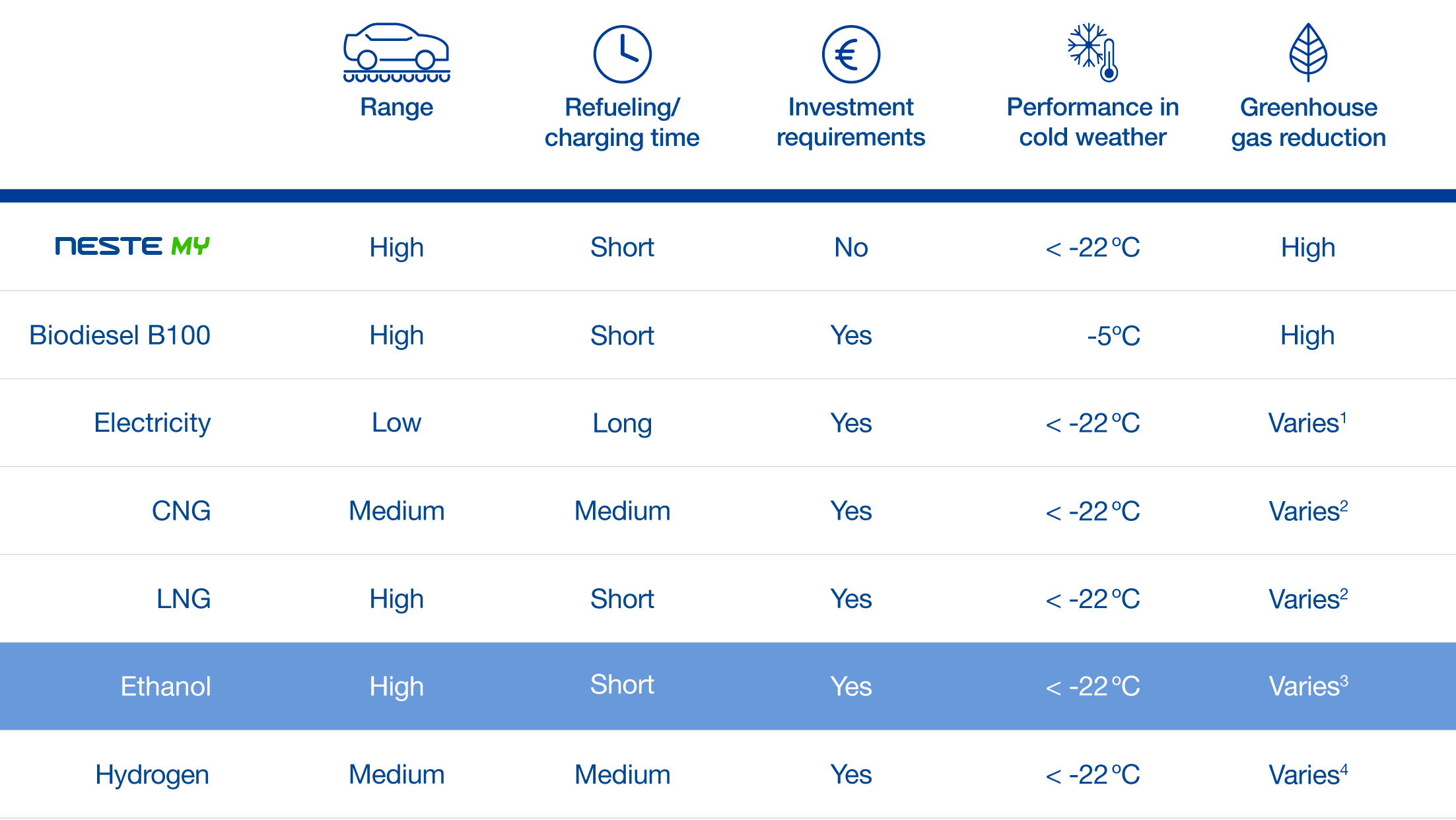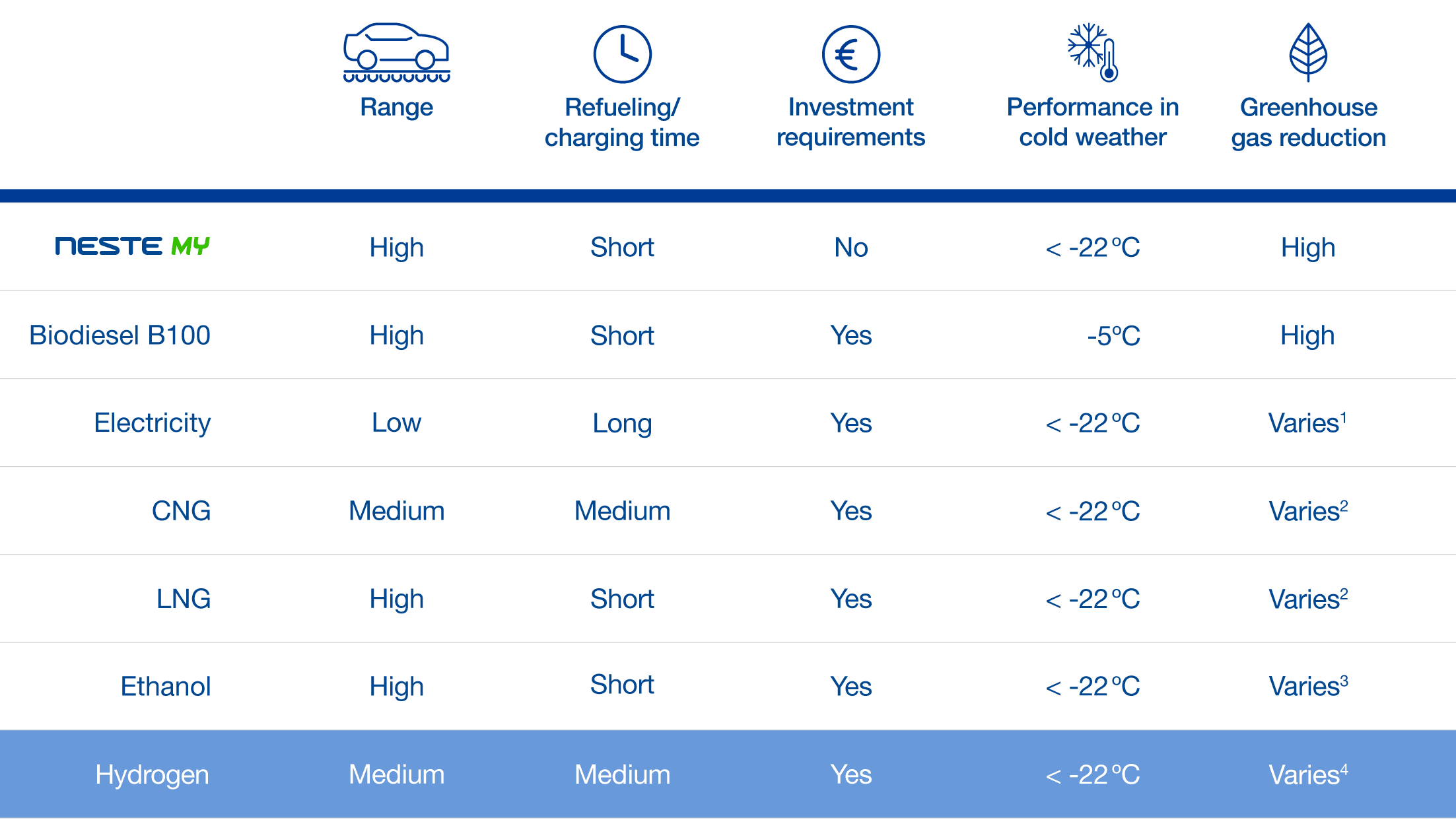Biofuels
Biofuels - the road to reducing greenhouse gas emissions
In 2019 the total global consumption of crude oil was 4,525 million tons of oil (Mtoe). As the transportation industry is responsible for 60% of this amount, ambitious goals have been set to reduce greenhouse gas (GHG) emissions. To achieve these objectives, transportation companies have a variety of solutions available, for example switching to renewable and other lower-emission alternatives, such as biofuels and electrification.

What are biofuels?
Biofuels are fuels made from renewable raw materials, such as biomass or oils and fats from renewable origins. Fossil fuels are made from non-renewable fossil resources and release carbon into the atmosphere. When comparing the two, biofuels emit significantly less greenhouse gas emissions over their life cycle. Renewable fuels are made from previously used materials (for example waste and residues) or oil extracted from plants that can re-absorb CO2 from the air through photosynthesis.
Renewable diesel (e.g. Hydrotreated Vegetable Oil, HVO) and conventional biodiesel (e.g. Fatty Acid Methyl Ester, FAME or Rapeseed Methyl Ester, RME) are often confused. Although both fuels can be produced from renewable raw materials, they are very different products. Conventional biofuels are manufactured largely from vegetable oils, such as rapeseed oil or soybean oil, whereas renewable fuels are more and more produced from waste and residues. Advanced production technologies ensure that they retain their high quality.
Key differences between renewable diesel and conventional biodiesel are found in quality and storability. The chemical composition of conventional biodiesel is different from fossil and renewable diesel, which limits its use in fuel blends.
Factors for consideration
RANGE
AVAILABILITY

REFUELING TIME
INVESTMENT REQUIREMENTS
PERFORMANCE IN COLD WEATHER
GREENHOUSE GAS REDUCTION
especially when taking into consideration the total cost of ownership.
Factors for consideration
Alternative fuels – a comparison
The most widely available alternative fuels in Belgium are HVO (renewable diesel), biodiesel, electricity, biogas and ethanol. A brief description of what these alternatives entail can be found below. We included electricity/battery operation in our the comparison, although the majority of electricity in most of Europe’s countries is not from renewable sources, yet.
HVO or renewable diesel
HVO is a high-quality renewable diesel with a similar chemical composition to fossil diesel. It is made entirely from renewable raw materials and can be used as a drop-in fuel. In Belgium Neste sells HVO100 branded as Neste MY Renewable Diesel™.
You can refuel renewable diesel in all diesel-powered vehicles without modifying the engine or investing in new vehicles. The use of Neste MY Renewable Diesel can also reduce emissions of nitrogen oxide (NOx) and particle emissions, especially in older vehicles with less developed engine technology. Renewable diesel works just like fossil diesel: it can withstand cold conditions down to -22ºC, and can be stored for a very long time. It is possible to blend renewable diesel with fossil diesel in any proportion or use it as such.
Neste MY Renewable Diesel is supplied in Belgium through selected distributors and can be refueled at several stations. We are constantly working to expand our network.
Read more about Neste MY Renewable Diesel.
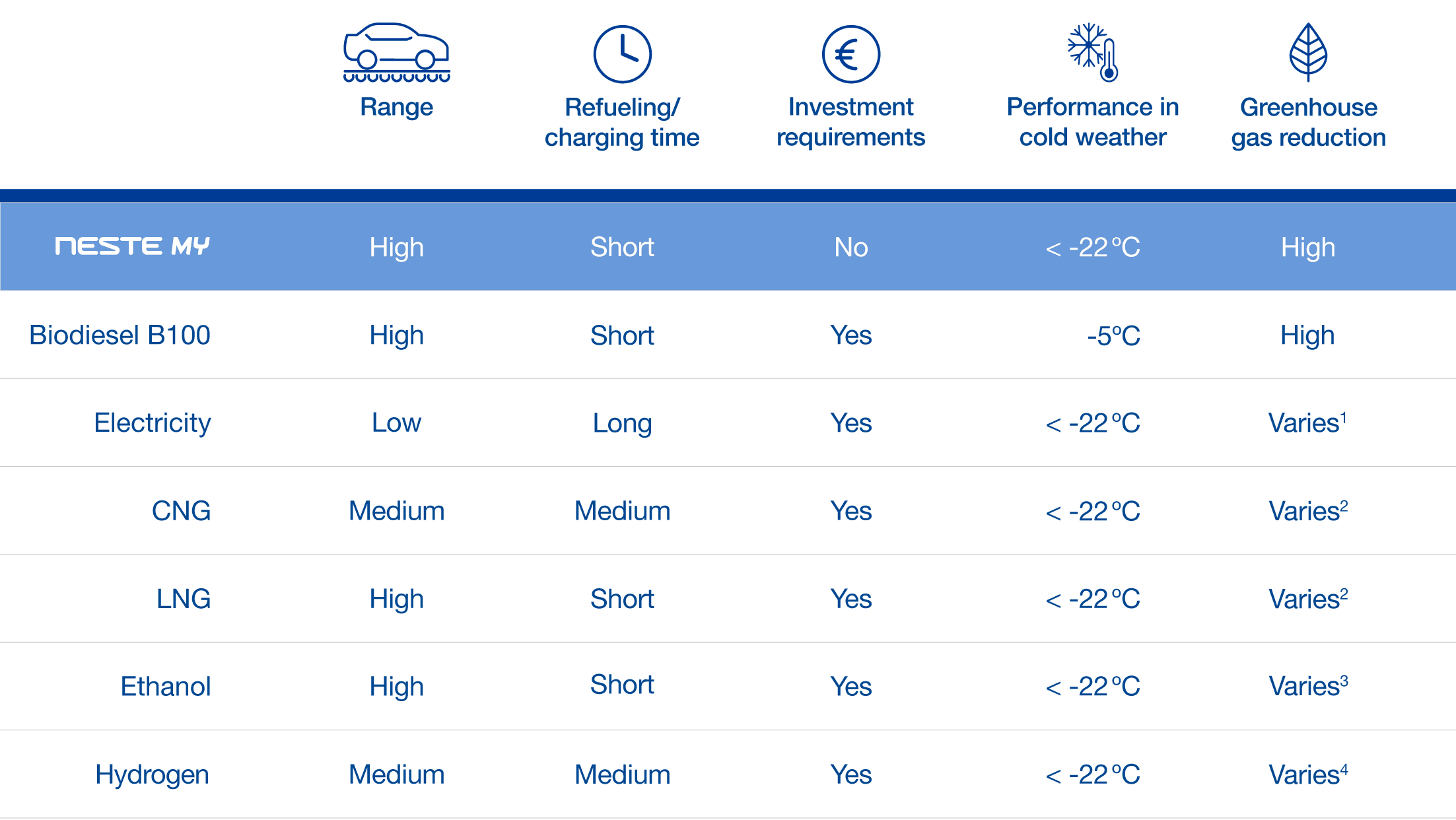
1 Depends on electricity. 2 No reduction to high (natural gas vs. biogas). 3 Medium to high. 4 No reduction to high (depends on Hydrogen source).
Questions and answers
about biofuels
Learn more about Neste MY Renewable Diesel

Questions? Get answers

Customer stories



